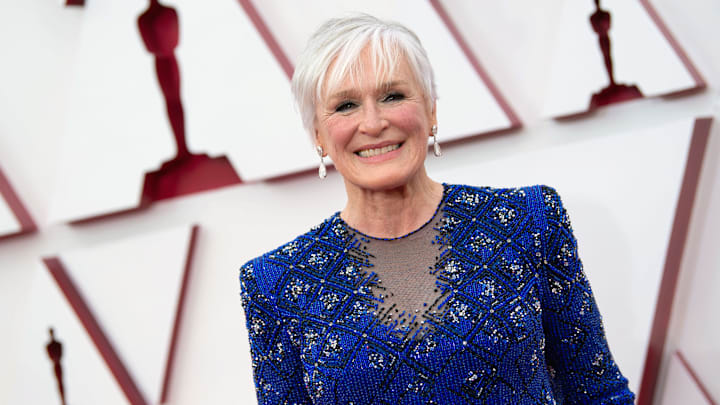For more than four decades, the Golden Raspberry Awards (or “Razzies”) have served as the Academy Awards’ evil twin: honoring Hollywood’s worst output from a given year. It’s a decidedly mean-spirited game, especially considering the very subjective nature of liking and disliking things in general. But that’s sort of the point—and nothing makes it clearer than the fact that some films have been in contention for both Razzies and Oscars.
Usually, the categories don’t coincide. This year, for example, Elvis amassed eight Oscar nominations, including Best Actor for Austin Butler and Best Picture. Its two Razzie nominations are thanks to Tom Hanks: He’s up for Worst Supporting Actor and Worst Screen Couple, paired with “His Latex-Laden Face (and Ludicrous Accent).”
But sometimes they do. Aerosmith’s “I Don’t Want to Miss a Thing” (from 1998’s Armageddon), Trisha Yearwood’s “How Do I Live” (from 1997’s Con Air), and Henry Mancini and Leslie Bricusse’s “Life in a Looking Glass” (from 1986’s That’s Life!) have all been nominated for the Best Original Song Oscar and the Worst Original Song Razzie.
And on three occasions, an actor’s performance in a single role has earned them both an Oscar and a Razzie nomination. Read on to find out who they are.
1. James Coco // Only When I Laugh (1981)

Neil Simon’s loose adaptation of his 1970 play The Gingerbread Lady follows Georgia Hines (Marsha Mason), an actress trying to maintain her sobriety and her career after a stint in rehab. Critics praised Kristy McNichol for her portrayal of Georgia’s teenage daughter, but the other performances were polarizing, to say the least. As Roger Ebert put it, “The other people in the movie seem to be drawn from superficial medical advice columns, advice for the lovelorn, and the character insights of popular songs.”
That apparently worked on enough viewers to earn James Coco a Best Supporting Actor Oscar nomination for his role as a gay actor in Georgia’s inner circle of friends—but not quite enough to keep him from also being nominated for a Razzie for the part. He lost both: the Oscar to John Gielgud for Arthur and the Razzie to Steve Forrest in Mommie Dearest.
2. Amy Irving // Yentl (1983)
Yentl—based on Yentl The Yeshiva Boy by Isaac Bashevis Singer—is the story of Yentl, an early-20th-century Ashkenazi Jewish woman (played by Barbra Streisand) who disguises herself as a man so she can go to school. Much like in Shakespeare’s Twelfth Night, the gender swap engenders a socially unacceptable love triangle. Unlike in Twelfth Night, Yentl’s main character sings her inner monologue.
The film garnered a slew of Golden Globe and Oscar nominations. Most notably, Streisand became the first woman to win the Golden Globe award for Best Director (only two other women, Chloé Zhao and Jane Campion, have won since).
But not everyone appreciated spending more than two hours in Yentl’s musical mind palace. The movie also scored three Razzie nominations: Worst Musical Score, Streisand for Worst Actor, and Amy Irving for Worst Supporting Actress. Irving’s performance as Hadass—a doll-like, docile feminine archetype who serves as Yentl’s foil—earned her an Oscar nomination for Best Supporting Actress, too.
Irving, like Coco before her, lost both: the Oscar to Linda Hunt for The Year of Living Dangerously, and the Razzie to Sybil Danning for her performances in both Chained Heat and Hercules.
3. Glenn Close // Hillbilly Elegy (2020)
J.D. Vance’s 2016 memoir of growing up poor in Ohio has been criticized for perpetuating harmful Appalachian stereotypes, and Ron Howard’s 2020 film adaptation drew similar reactions. Glenn Close’s caricaturish turn as matriarch Mamaw earned her a Razzie nomination for Worst Supporting Actress, but some viewers saw her as a captivating and focused force that kept the film together. Academy voters bestowed a Best Supporting Actress nomination on her, though Youn Yuh-jung ultimately took home the statuette for her performance in Minari. The Razzie went to Maddie Ziegler for Music.
*No, we haven’t forgotten about Ana de Armas, who just received a Best Actress Oscar nod for playing Marilyn Monroe in Blonde. The film does lead the pack with eight Razzie nominations, one of which is Worst Screen Couple. But the nomination belongs to “Both Real Life Characters in the Fallacious White House Bedroom Scene”—in other words, the fictional depictions of Monroe and John F. Kennedy in Blonde, rather than the actors themselves.
